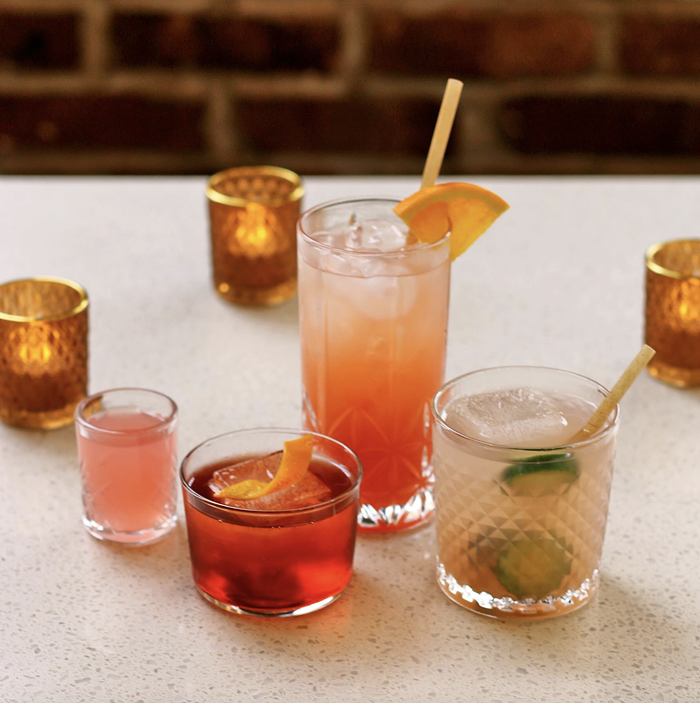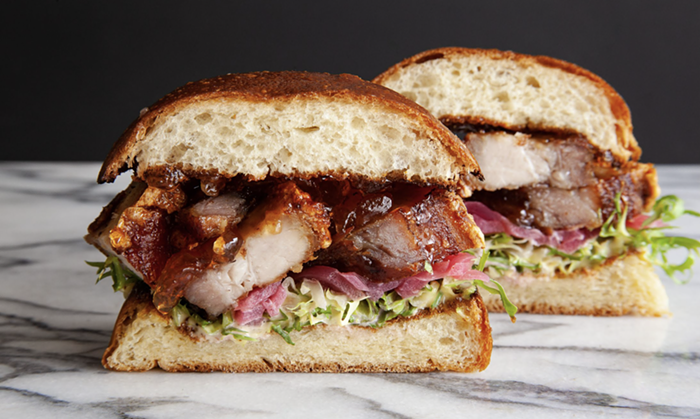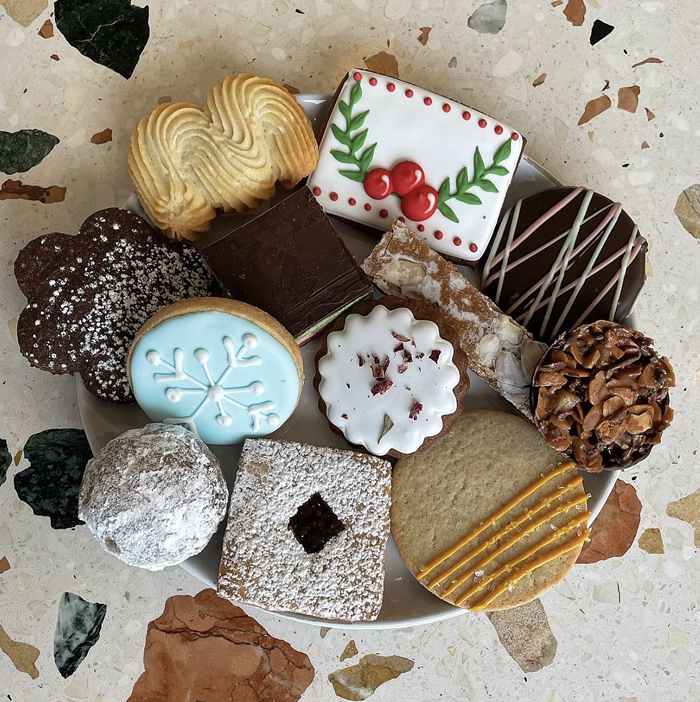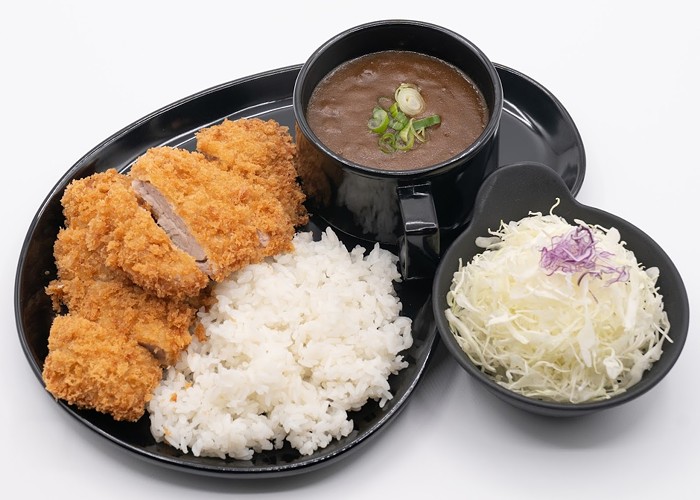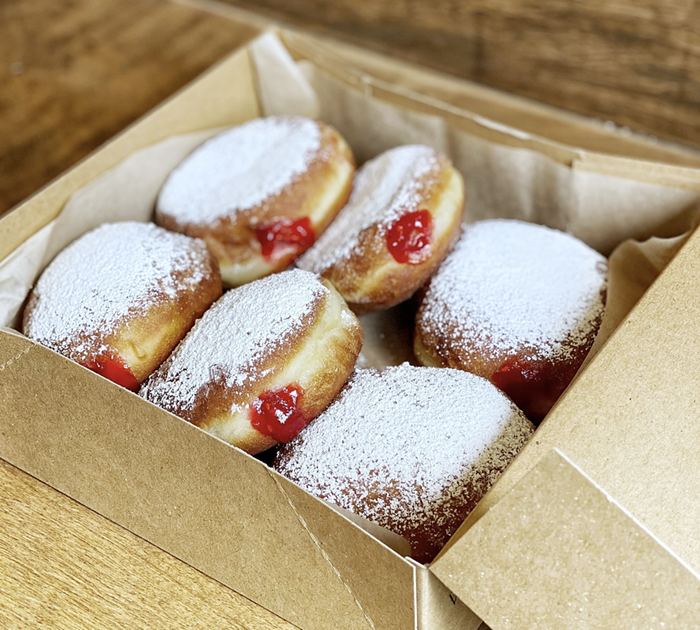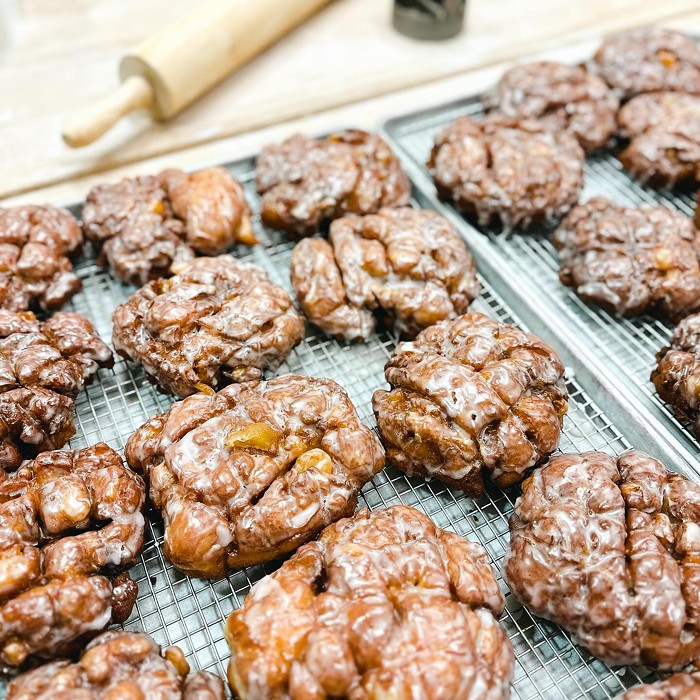
When I tried the inaugural beers from Floodland Brewing last weekend, I wasn’t surprised that they were deeply complex and interesting; Adam Paysse, formerly of Holy Mountain Brewing, has been barrel-aging beers for his new brewery for the last nine months, and there was little question in my mind that these highly anticipated beers would be fantastic.
Since last March, Paysse has been filling his basement brewery, located in an unmarked commercial building in Fremont, with stacks of oak casks, fermenting dozens of different beers, and he’s kept these beers to himself up until this past weekend, when he gave The Stranger an exclusive look inside his brewery and invited us in for a tasting of three beers.
My biggest surprise while drinking Paysse’s first Floodland beers was just how incredibly light and balanced they were. Paysse is making sour, barrel-aged, and wild beers that are, unlike what they’re names sometimes suggest, incredibly easy to drink. Dare I say crushable?
This in no way implies that these beers are uninteresting, quite the opposite. By turning the volume down on the sour and funky aspects of wild beer, Paysse is creating something far more intriguing. His first three beers, Field Blend Cherry, Protection Spells, and Drive Out the Spirits, are layered with complexity.
Field Blend Cherry tasted like a slice of cherry pie covered in cinnamon and transformed into something refreshing and effervescent.
Protection Spells was even lighter, with such a delicate interplay of flavors that it seemed like a work of art inside a beer; it had the scent and flavor of a sliced lemon sitting in a dish of rose water. Creating a beer with rose water as its most dominant flavor is the most metal thing I can think of.
Drive Out the Spirits was a blueberry beer that reminded me more of dark fruit and sweet balsamic vinegar than blueberries, with a creamy and smooth body.
“I would say that drinkability is a huge underpinning of the vast majority of beers that I make,” Paysse said. “I want a beer that strikes a balance, that if you want to just hang out in the backyard and shoot the shit with your friends, you can just drink it and not think about it. But if you want to get stoned and sit in your chair and be fucking contemplative about it, it can serve that purpose also.”
Paysse’s beers offer beguiling flavors to think about and appreciate for anyone willing to pay attention. And given the anticipation for Floodland Brewing, plenty of people will be taking notes on these beers.
Much of Floodland’s beers, including these first three, will only be available to the 200 lucky people that bought memberships into the Fremont brewery. The club sold out in 45 minutes when Paysse put memberships up for sale last July.
What could inspire 200 people to rush to pay for beer made by a brewery that hadn’t even opened yet? A combination of Paysse’s proven track record at Holy Mountain Brewing paired with the ambitious nature of Floodland.
I’ll keep the beer geekery short, but to understand how unique Floodland is, you must first understand a bit about how beer is made—by extracting sugar out of grains and then fermenting those sugars with yeast. Modern industrial beer—the IPA and lager at your grocery store—is fermented with species of yeast that have been developed by professional labs to behave in very predictable ways. Conventional brewers then use sterile, stainless steel fermenters, ensuring that only the industrial yeast is allowed to grow inside the beer.
This gives the modern brewer the ability to replicate the same flavors and qualities in each batch of their beer.

Paysse takes this process and flips it on its head. Instead of one strain of industrial yeast, Paysse employs a mix of different yeasts, including wild ones that have never been tamed by a laboratory, that all work together to add different flavors and qualities to his beer. Instead of fermenting in stainless steel, Payssee ferments in wooden casks, which are naturally inoculated with their own bacteria and yeast.
By introducing this wild mix to his beers, and then letting them slowly develop over months, and eventually years, Paysse is creating beers with dynamic and multi-dimensional flavors. If a modern IPA is a soloist—just one yeast creating the beer like a violinist playing a piece by herself—a wild beer is an entire symphony of different musicians and instruments, each different type of yeast or bacteria contributing their own notes to the overall work of art.
As you’re drinking Paysse’s beers, these different notes come and go just like a piece of music, evolving as you’re drinking them. Field Blend Cherry started out with pleasantly funky with a cherry flavor and hints of cinnamon, but the cinnamon hues slowly grew stronger the more I drank it. By the time Paysse and I were finishing the bottle 40 minutes later, the taste of cinnamon was so pronounced it was like Paysse had dumped an entire jar of the spice into my glass.
Ironically, there’s no actual cinnamon in Field Blend Cherry. That flavor comes entirely from the Montmorency, Balaton and foraged Cornelian cherries that Paysse fermented the beer with. Most fruit beers are made with homogenized purees of fruit, but Paysse spent the summer traveling around the state buying specific varietals of fruit from different small farmers. The Cornelian cherries were foraged from a public tree within Seattle’s city limits.
Even the aroma of Field Blend Cherry is constantly changing—it bursts with funkiness as you lean into the beer, but a sweet aroma and finally notes of vanilla and wood replace each other. The beer had a drying quality to it, not like a bitter IPA but like a tannic wine, which just made me want to drink more of it.
Paysse went on to open a bottle of Protection Spells, a blend of saison and sour beer aged in oak and refermented with Washington pluots, a hybrid type of plum. It’s a sparkling and slightly tart beer, with flavors of grapefruit and lemon that blend with herbal notes, and the aroma and flavor of rose water.
“I wanted to make beers that were characterful and interesting and weren’t simple but were easy to drink, and to me that’s a balancing act,” Payssee said. “I think a lot of times when people are making beers that are acidic the acidity gets out of control and kind of overwhelms the beer. I think when people are making fruit beers, the fruit overshadows the base beer, the fermentation, and the conditioning. And I think sometimes pulling back from that can give you a balance that is really cool.”
For now, Paysse’s beers will be only available to his bottle club, but he hopes to start releasing beer publicly sometime this spring. The scarcity of Paysse’s beer is not artificial; the combination of fermentation time and his limited man power—he works essentially by himself—means that he can’t make enough to satisfy demand.
“I don’t want people to think that I’m intentionally making rare beer, because I’m not,” Paysse said. “It’s really difficult to make this stuff, it takes time, and I want to be hands on making it.”
I wonder how some of his bottle club members will react to this first release, as none of these are huge and intense barrel-aged beers that slap you in the face with sourness or barnyard funk. Paysse doesn’t seem too worried.
“People are going to get pissed about my beers, which is mostly fucking cool,” Paysse said. “I grew up playing in hardcore metal bands. The idea of sort of challenging nature of punk rock, of putting people in uncomfortable positions, I think is a really healthy thing.”

